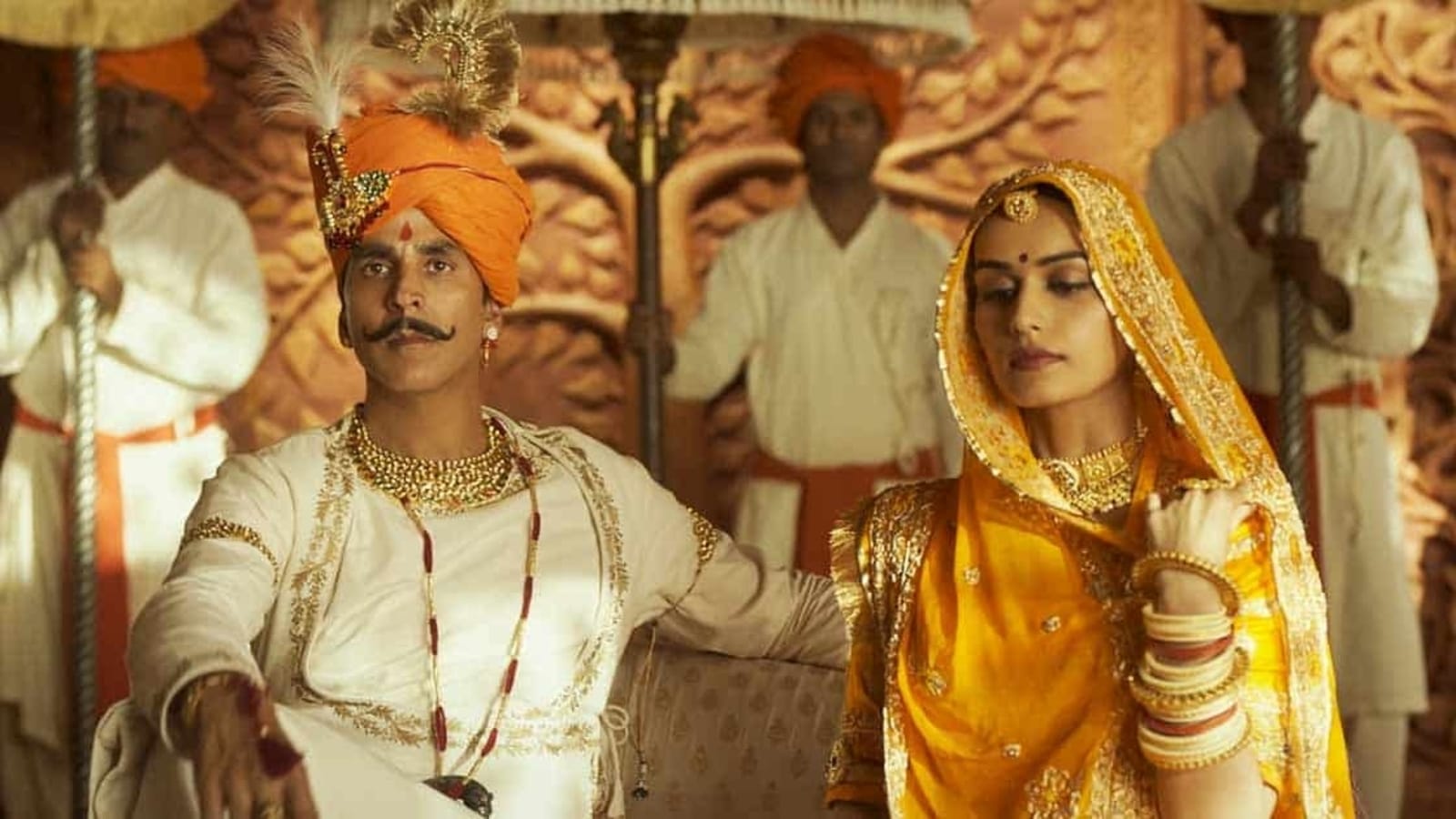Samrat Prithviraj review: No one seems human in Akshay Kumar’s part-panegyric, part-misguided feminist epic
An opening disclaimer for Samrat Prithviraj–one that flashes right after that CBFC certificate with ‘Samrat’ etched in handwritten word from a ball point pen above the typewriter-typed ‘Prithviraj’–promises its viewers that this film doesn’t ‘glorify’ the evil, archaic practices of sati and jauhar. I wonder if they forgot to add a wink emoji at the end of that sentence. Personally, I don’t know a better way to glorify mass suicides than with a song-dance sequence as women prepare to long jump into a pit of raging fire. (Also read: Vikram review: Kamal Haasan’s glorious comeback lays the groundwork for Tamil cinema’s most ambitious franchise)
But Dr Chandraprakash Dwivedi really, really wants his movie to be feminist y’all. Almost 100 years before Razia Sultan took Delhi’s throne, director Dwivedi shows how a Hindu queen took seat by her king at court, gave her inputs and opinion even as disapproving old men spat at the idea of it. Of course, the ideals of treating women as living-breathing humans with desires, ambitions, fears and agency go out the window as soon as an opportunity to make them dance in matching costumes in face of horrifying death presents itself.
This obsession with myth more than the man, is mostly what sinks Samrat Prithviraj. Dwivedi’s Prithviraj (played by Akshay Kumar) is already righteous, brave, benevolent and all for female empowerment when we first meet him. He is tackles lions and fights battles for the honour of a ‘naachnewali’ in the first 10 minutes of the film. This character does not change a smidge, let alone ‘develop’ through the course of the overlong two and a half hours. Akshay, 54, is miscast as the young king and it shows worse than ever in his scenes with 25-year-old Manushi Chillar, who plays Queen Sanyogita. Scenes of romance, even when they read letters sent to each other from different cities, make one uncomfortable, which only get further difficult to digest as they finally sing songs around sand dunes and give each other bedroom eyes. Manushi’s very visibly raw performance doesn’t help anything and Akshay’s strongest suit has never been romance either. It’s a mess beyond saving.
While the lead couple and the characters they played were wooden and as far removed from human as possible, those around them did a manage a somewhat better job. Among the saving graces were Ashutosh Rana’s appropriately raging, worst father-in-law ever act as Kannauj king Jaichand. Rana, as is always expected of him, expertly conveys the jealous, cruel heart of a treacherous king, an antithesis of the goodest ever Prithviraj and therefore, more believable than him. Also more human, surprisingly, was Manav Vij as Mohammad Ghori. Unlike the meat-guzzling, unbathed Alauddin Khijli of Ranveer Singh or any iterations of any Muslim rulers in the post-2014 world of desi period movies, Manav played Ghori with some restrain, rather than as an almost rabid emperor. His words fall with ease, without theatrics, and often, with more logic than our men on the good side of the fight.
The film’s battle scenes are luxe and stylish but better suited for the Baahubali types rather than in a tale of real historical figures. Arrows go flying in 360 degree shots and Prithviraj dodges a spear like Neo in the air. 24,000 men are slain yet not a single puddle of blood is seen in the battlefield. In another film, I would have perhaps marvelled at the camera angles, the dusty-beige look of the scenes, and the slick action, but medieval battles are supposed to be gory, horrible and more cruel than the stunning John Wick aesthetic.
Then there are finer (not fine at all) details like 10th century princesses wearing low-waist lehengas with sweetheart necklines straight out of Sabyasachi’s latest collection. Love letters between a Kannauj princess and her Rajput prince written with words like ‘ishq’ and ‘mubarak’. On their own, these things may not be deal breakers but added to an actor’s wooden performance as a one-dimensional character in a badly told story, they pile up.
Based on poem Prithviraj Raso by the king’s loyal Chand Bardai (played by Sonu Sood in the film), Samrat Prithviraj often crosses over to panegyric, bhajan territory rather than stay believable as a story of a brave but still ‘human’ king. There is nothing more distancing than a man who is already a god.
For all the latest entertainment News Click Here


